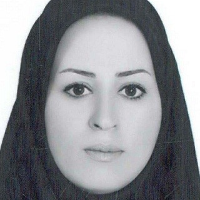The Effects of Combining Core Stability with Stretching Exercises on Pain Intensity and Motor Function in People with Chronic Nonspecific Low Back Pain with and without Hyperlordosis
Low back pain is a significant issue in the field of health. Therefore, addressing new therapeutic approaches seems necessary.
The present study examined the effect of combining core stability with stretching exercises on pain intensity and motor function in people with chronic nonspecific low back pain with and without hyperlordosis.
The research method was quasi-experimental, and its statistical population included adolescent girls with chronic low back pain with and without lumbar hyperlordosis in Lahijan schools (2018). Sixty qualified girls aged 12 to 15 years were purposefully selected based on inclusion and exclusion criteria and were randomly divided into four groups. Experimental groups with and without lordosis performed stretching-core stability exercises for eight weeks in three 45-minute sessions. At the beginning and end of the exercise period, the dependent variables were evaluated.
Students with and without lumbar arch enlargement who underwent therapeutic exercise experienced significant pain relief and lumbar arch reduction. Lumbar muscle strength was also increased compared to the control group (p = 0.001). However, there was a significant difference in static and dynamic balance variables between experimental and control groups without lordosis. Results also showed the effect of exercises in all variables between pre-test and post-test of the two experimental groups (p = 0.001).
Combining core stability with stretching exercises can, in addition to improving chronic low back pain, reduce the severity of lumbar lordosis and the trunk muscle endurance and its balance.
-
The Role of COVID-19 Repercussions on Mental Health Issues on University Students
*, Fariborz Ramezani
Journal of Educational and Scholastic Studies, -
The role of students ‘gender difference on socio-general health and corona-induced anxiety in COVID-19 pandemic
*, Fariborz Ramezani
Medical Journal of Mashhad University of Medical Sciences,



